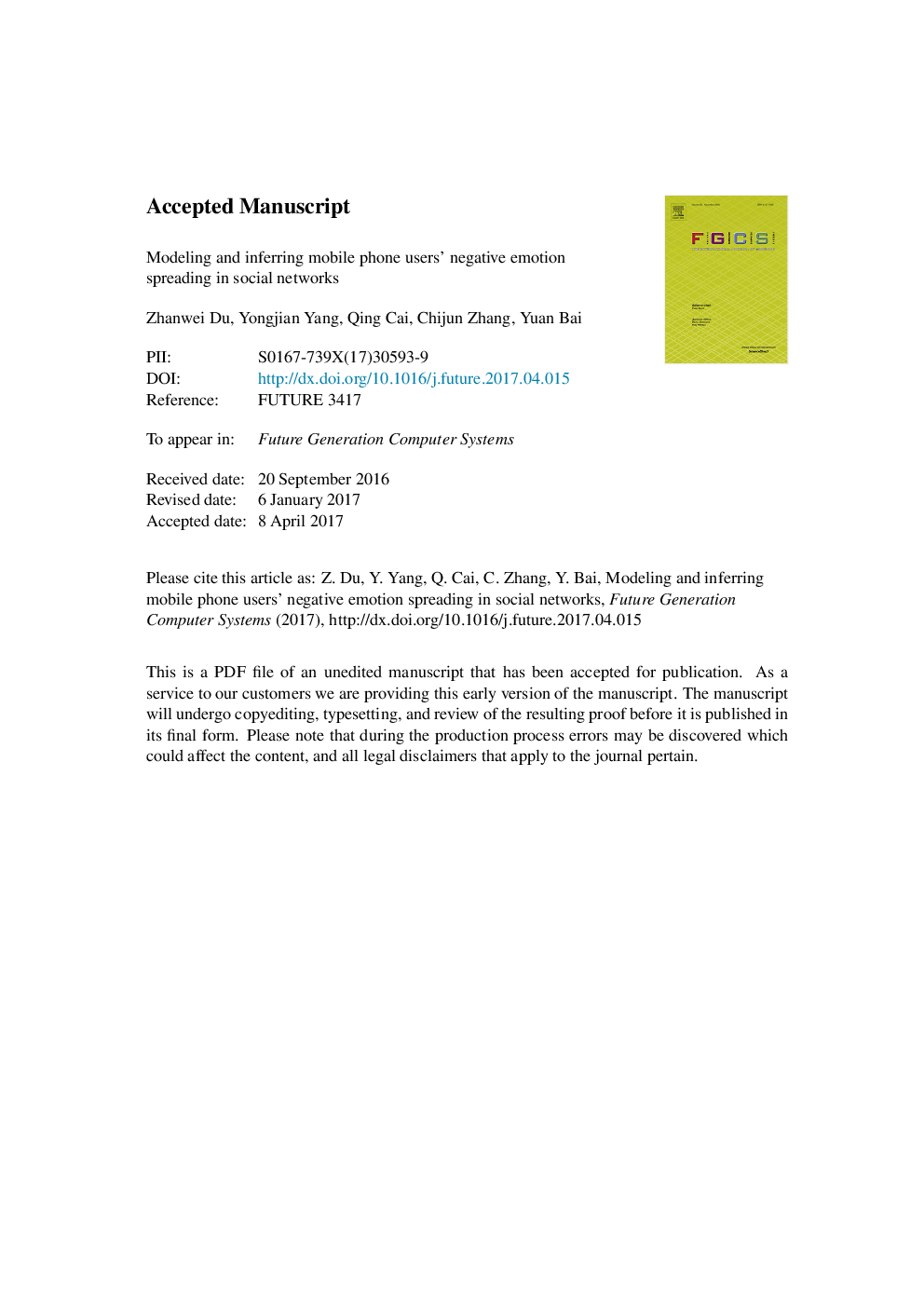| Article ID | Journal | Published Year | Pages | File Type |
|---|---|---|---|---|
| 4950150 | Future Generation Computer Systems | 2018 | 40 Pages |
Abstract
Individual emotion, as an important part of personal privacy on health information, is vital for physical and emotional well-being. Despite the physiological reasons, emotion contagion between peoples is pivotal to understand people's emotional changes. However, most existing works at the individual level focus on small groups in the short term. Because negative emotions are natural to appear and can largely affect the dynamics of emotion spreading, therefore this paper aims to investigate the negative emotion spreading mechanism at the individual level of large user groups in the long term, and finally infer individuals' ability of the negative emotion spreading by observing people's behaviors on mobile social networking. Specifically, we first propose a novel metric for measuring individuals' degree of negative emotion spreading. We then put forward a Graph-Coupled Hidden Markov Sentiment Model for modeling the propagation of infectious negative sentiment locally within a social network using data collected by mobile phones. In this model, we assume that one can infect others even if he/she is not infected, which is an extension of the traditional assumption in epidemic spreading. Because the proposed model involves parameters, to infer those parameters, Gibbs sampling method is employed. Experiments on both synthetic and real-world network datasets are carried out, and the efficacy of our proposed model is verified. The case study on real-world, as a potential application, demonstrates that the proposed model provides a useful insight for understanding the correlation between network structure and the emotion shift.
Related Topics
Physical Sciences and Engineering
Computer Science
Computational Theory and Mathematics
Authors
Zhanwei Du, Yongjian Yang, Qing Cai, Chijun Zhang, Yuan Bai,
